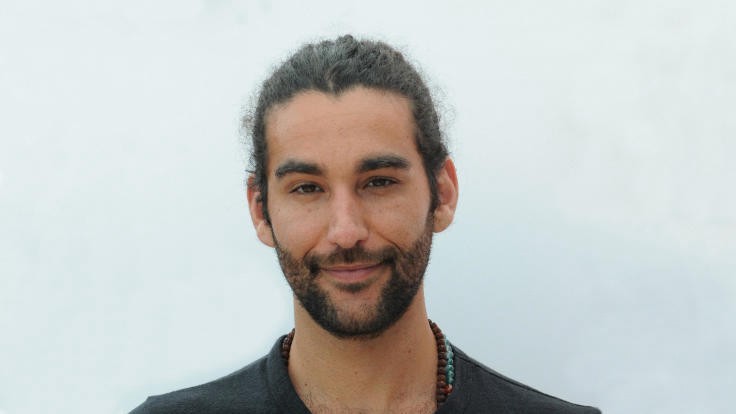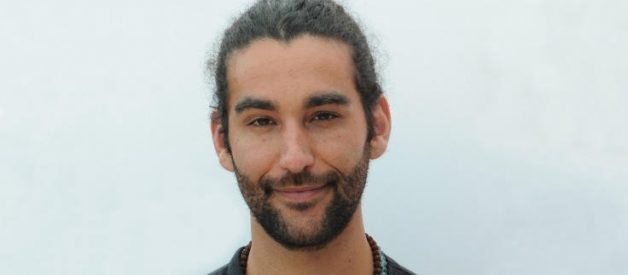
This post originally appeared on The Life I Want blog.
Last month I interviewed Marc Weinstein, one of the employees of the 2017 Fyre Festival, which infamously didn?t happen, stranding attendees who had paid thousands of dollars for a luxury experience on an island with hurricane relief tents and soggy cheese sandwiches.
The Netflix documentary on the debacle portrays Weinstein as the voice of reason: one of the few naysayers who tried to raise concerns in the weeks leading up to the festival. Yet he acknowledges in the film that by staying with the festival until it imploded, he was complicit in the swindle of attendees and the Bahamian day laborers and service providers who didn?t get paid for their work.
Thankfully, most of us will never be involved with a work situation as bad as Fyre, worthy of both documentaries (Hulu did one too) and criminal charges. (Fyre CEO Billy McFarland is currently serving a six-year sentence for wire fraud and defrauding investors at a medium security facility in New York.)
But Weinstein?s reflections about how he got sucked in hold valuable lessons for all of us who are trying to create the lives we want and do work we?re proud of, with people we?re proud to know. We spoke about FOMO (fear of missing out) and vulnerability in our digital age, and how easy it can be to get caught up in an idea championed by a charismatic boss and celebrity influencers.
Here are five lessons from Weinstein?s time with the ill-fated festival.
1. Notice if you?re feeling vulnerable. In his conversation with me, Weinstein provided context that wasn?t in the documentary about why he boarded the sinking Fyre ship in the first place. He was going through his second entrepreneurial failure, which was damaging his friendship with his co-founder. At the same time, his long-term romantic relationship was falling apart.
Here I was: 27 years old, Wharton graduate, Morgan Stanley investment banking alumni ? very much on the spectrum of seeking achievement ? and having experienced failure for the first time in my life in a big way.
Then his friend Charlie called him about the opportunity to work with Fyre, saying that if it worked out, Weinstein might be able to join the company in a C-level role.
Charlie and I went to college together, we were in the same fraternity, and he was a representation of everything I had failed to achieve. Every deal that he worked on was a huge success, and he was a rising star at his company. And he told me that I should do this. And I was in this rough place.
In that vulnerable state, Weinstein joined Fyre, believing it was a giant life raft rather than the Titanic. ?My luck had finally turned around, and I was going to be working on what could be one of the biggest media events of the year,? he said.
When we?re faced with big life decisions, it?s worth taking a cold hard look at whether something might be making us prone to poor decision-making. A professional career or life coach, or a long-time friend who doesn?t have a stake in the situation, might be able to help us avoid running into something even worse.
2. Focus on what you appreciate rather than what you need. Weinstein realized that he could have counteracted the vulnerability and neediness that led him to Fyre by focusing on gratitude:
When we?re feeling ?less than,? and we?re feeling vulnerable or not powerful, then we can come from this place of neediness. Neediness is what people can capitalize on to take advantage of you.
If you are grateful for what you have, if you are confident in your abilities ? if I were grateful and appreciative of what I had around me instead of chasing something ? then I probably wouldn?t have gone. That moment when they said, ?We had a deal ? take it or leave it,? I would have been like, ?I?m going to leave it. Because it?s not worth it.?
But I wasn?t there. I was like, ?What if I miss this?? When we have that feeling, it means that we don?t feel like we have enough already. We need that next thing.
I asked what Weinstein was grateful for from the Fyre experience. Like the Princeton professor who became famous for his failure CV, Weinstein expressed gratitude (tempered with a bit of irony) for his 15 minutes of fame:
I?m grateful for being here. It?s ironic that I was brought up to try to achieve and get that Ivy League degree and get that banking job and get that hedge fund job and start your company and sell it. And after all that, the reason I?m here right now is because of this massive public failure of some stupid music festival that never happened.
So that?s what I?m grateful for: grateful for this opportunity, grateful for the new people in my life.
There are plenty of scientifically proven benefits of gratitude; another to add to the list is the power to dissuade us from dangerous neediness.
3. Trust your gut ? not your FOMO. FOMO played a starring role in the Fyre story: in selling tickets to hundreds of customers on the thin promises of a slick promotional video and ?influencer? campaign on Instagram, and in Fyre employees? loyalty to McFarland and the festival.
As soon as Weinstein signed on with Fyre, he discovered what a mess it was. He asked McFarland to renegotiate his contract, which made 70 percent of his fee payable after the event.
Billy basically was like, ?We had a deal ? take it or leave it.?
This is that point where I now have the opportunity to say, ?I trust myself enough to know that this isn?t going to work. It?s like four weeks away and it?s a mess, and I should leave.?
But why did I stay? I was suffering from FOMO. That?s what Fyre sold; that?s what Billy was so good at: convincing you that you were going to miss out on the biggest thing ever.
That?s what all con artists are really good at: convincing people that they need something that they don?t have. That?s how we fall out of trust with ourselves and our own intuition. So for me it was like, ?What if this thing actually works out and I?m just the loser that was like, ?This isn?t going to work? and left at the one-yard line, and then it?s the biggest festival of all time.?
That?s not in my DNA. I had to pursue it. I had to try to make it work. And so I stayed.
If we?re in a position to have influence, we?ve probably earned it in part by demonstrating good professional judgment in the past. We should trust our inner voice ? especially when it suggests that something is very wrong.
4. Beware the charismatic CEO. Weinstein suggested that he and the other Fyre employees were duped by McFarland?s authority and charisma:
What [McFarland] was very good at was weaving a story. And from my perspective he was very good at pulling in investor capital, which was something that I had not succeeded at as an entrepreneur. That?s a quality that I respected: to be able to weave a narrative, and then to have legitimate people support you in that story that you?re telling and help you make it a reality.
The best entrepreneurs are also the best storytellers. The problem with that is that the best con artists are also the best storytellers. And so how do you differentiate between who is a con artist, and who is just the delusional founder that?s going to make his version of reality come to life? It?s really challenging. Obviously, I wasn?t that good at it.
Since Weinstein is in the venture capital world now, I asked how he avoids the same trap:
My favorite founders in meetings now are not the charismatic CEOs weaving an incredible story; they?re the founders that elevate the team members around them. I recently met a company and I could tell they had worked together before. The CEO was the clear leader. They deferred to him for the most important questions, but he knew how to bring out the right answers from each and every one of them. So I could see the depth of the roster at that company.
Weinstein added that some basic financial due diligence, which he failed to do, would have revealed that the emperor wore no clothes.
When something seems too good to be true, it probably is. If we?re charmed by a new potential employer, we should study the bench and look at the numbers.
5. Social media is commodifying our experiences. In a Medium post a few months after the festival fell apart, Weinstein suggested that social media has undermined the wisdom that we should seek experiences rather than material goods:
On the surface, it sounds great to value experiences over belongings: If we all did what we loved and didn?t measure ourselves by our accumulation of material things, the world would be a better place.
But the way we assign that value has become its own problem ? a sort of new consumerism. Rather than living experiences, we consume them: We capture key moments in time to share on social media, and, as such, take each experience as a possession.
We no longer measure one another by what we have, but instead by what we have done lately (or, at least how well we?ve posted about it) ? and this is not much better.
Weinstein admitted to me that he still struggles with his own social media use, tempted to post photos of beautiful beaches and the good life: ?I still am susceptible.?
We don?t need to start down the well-trodden path of the downfalls of social media here, do we?
Weinstein had to learn these lessons in a painfully public way. With gratitude to him for his candor and reflection, we can avoid these online and offline traps ourselves and help others do the same.
Quotes have been edited for clarity. Our full conversation is available on Outpost Ubud?s Facebook page.

